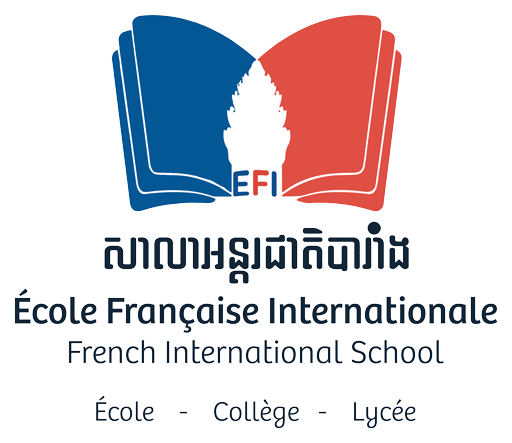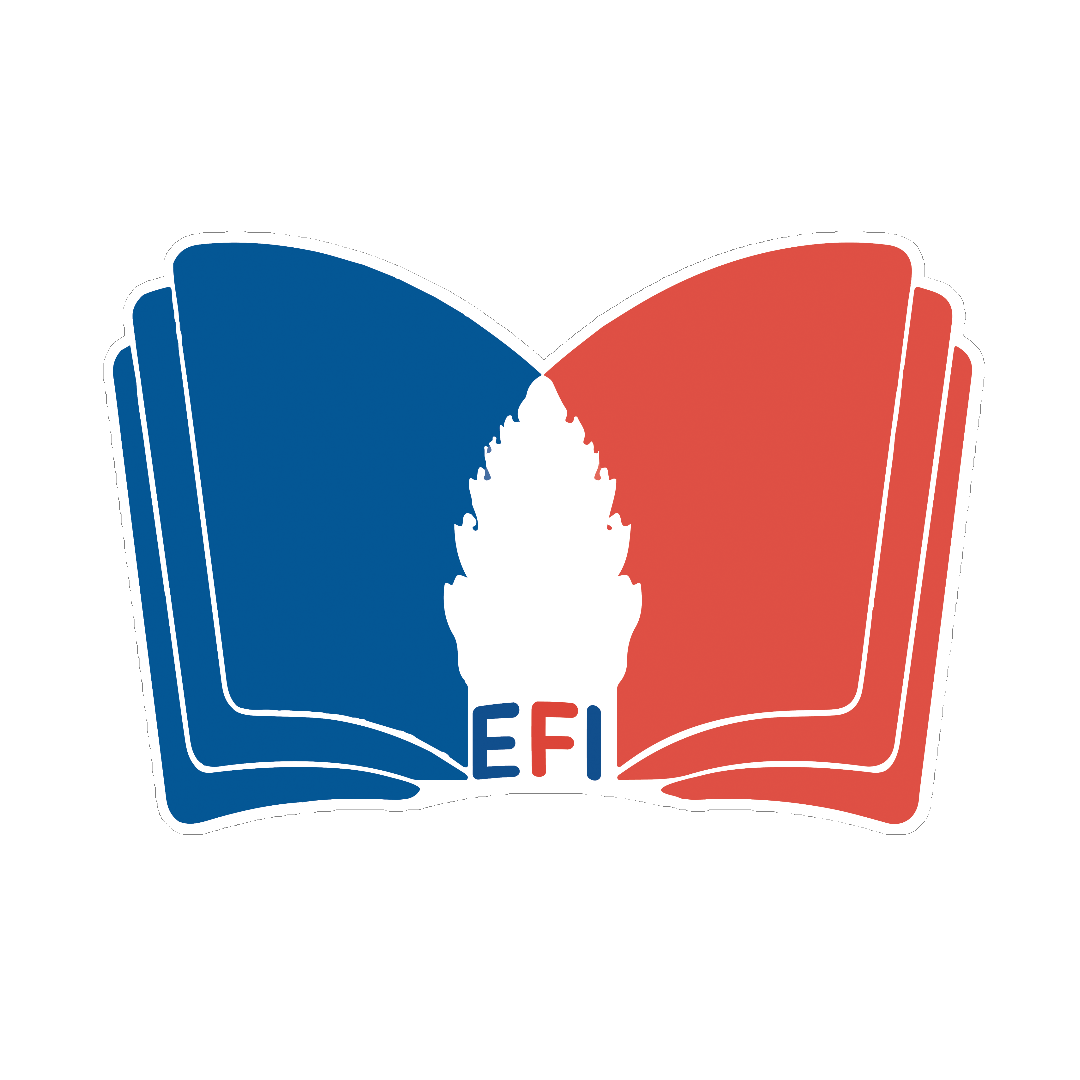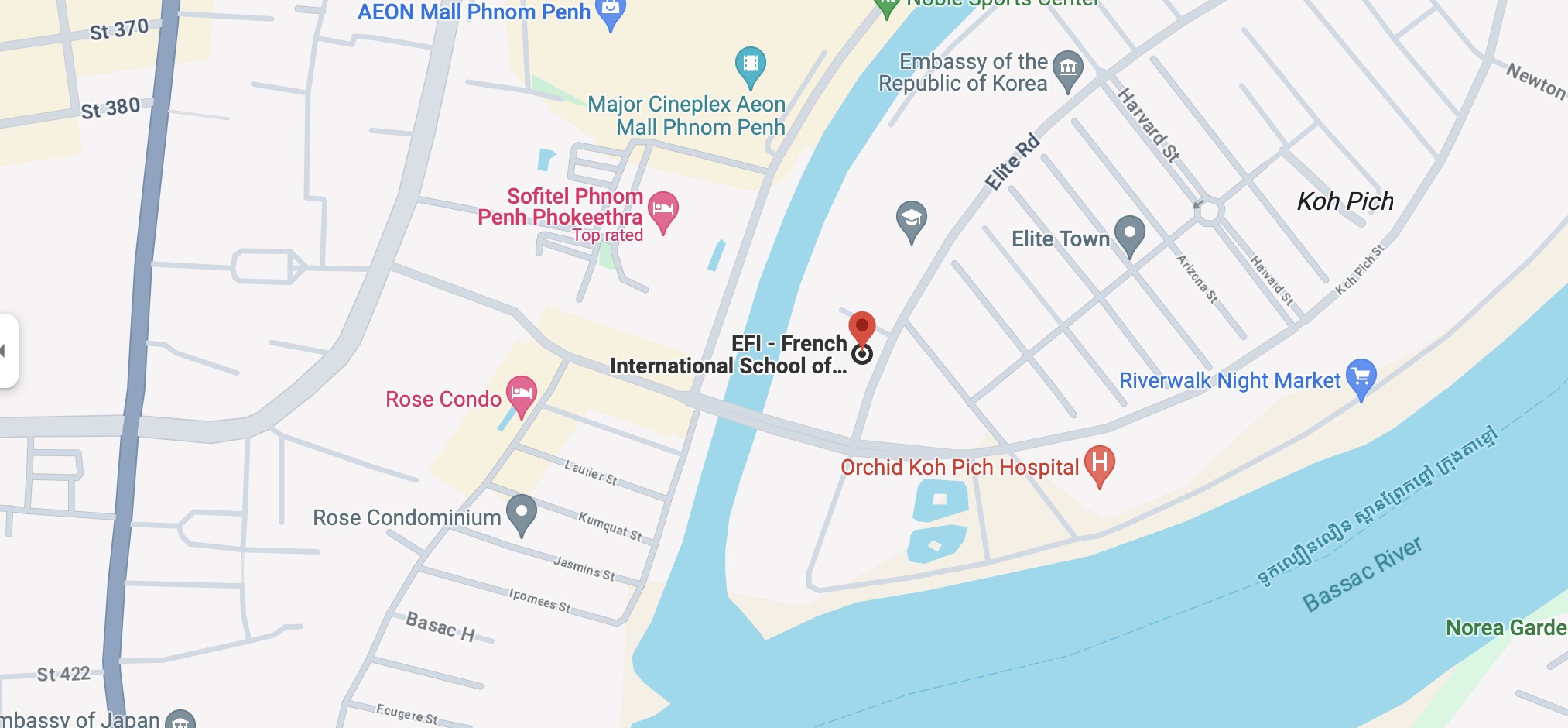The curriculum
The curriculum
From kindergarten to high school
The French curriculum at Primary & Middle School level operates in four cycles:
- Kindergarten : Pre-K (PS), JK (MS) and SK (GS).
- Primary school : Grade 1 (CP), Grade 2 (CE1), Grade 3 (CE2), Grade 4 (CM1) and Grade 5 (CM2).
- Middle school : Grade 6 (6ème), Grade 7 (5ème), Grade 8 (4ème) and Grade 9 (3ème).
- High school : Grade 10 (Seconde), Grade 11 (Première) and Grade 12 (Terminale).
The French teaching system also works in cycles:
- Cycle 1 (from Pre-K to SK)
- Cycle 2 (from Grade 1 to Grade 3)
- Cycle 3 (from Grade 4 to Grade 6)
- Cycle 4 (from Grade 7 to Grade 9)
TPS / Nursery
In TPS, we are particularly committed to the well-being of the child and the respect of his physiological, relational, emotional, cognitive and educational needs: rhythm of life, development, fundamental learning, motor skills, hygiene and cleanliness, protection and safety, diet, nap, etc.
We organize and implement bilingual French-English learning based on manipulation, experimentation and play and allowing the child to exercise his motor, sensory, affective, relational and intellectual capacities to gradually become an autonomous and socialized.
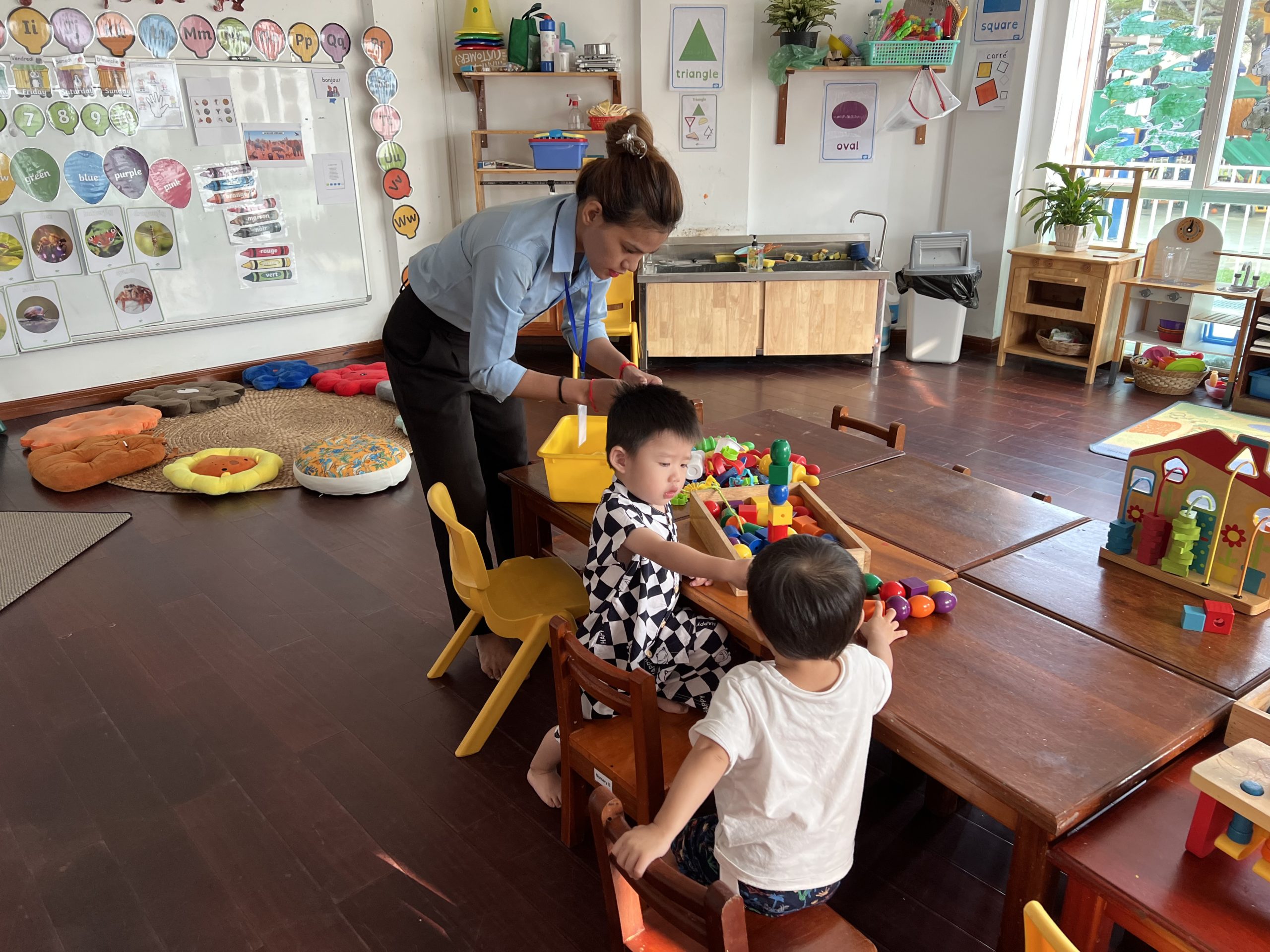
Kindergarten
In the French teaching program, kindergarten (cycle 1) is centered on 5 learning outcomes:
- Utilise the language in all its dimensions
- Act, understand and express yourself through physical activity
- Act, understand and express yourself through artistic activities
- Build the foundational tools needed to structure your thinking
- Explore the world
From a very early age, children begin to develop their identity. This key period is crucial and lays the foundations of their learning and behaviour for the rest of their life. EFI therefore considers it of the utmost importance to document the work done with the students in partnership and understanding with their families. In our school, we emphasise the holistic development of young children. This process considers many dimensions: neurological, psychomotor skills, social and emotional, cognitive and language skills.
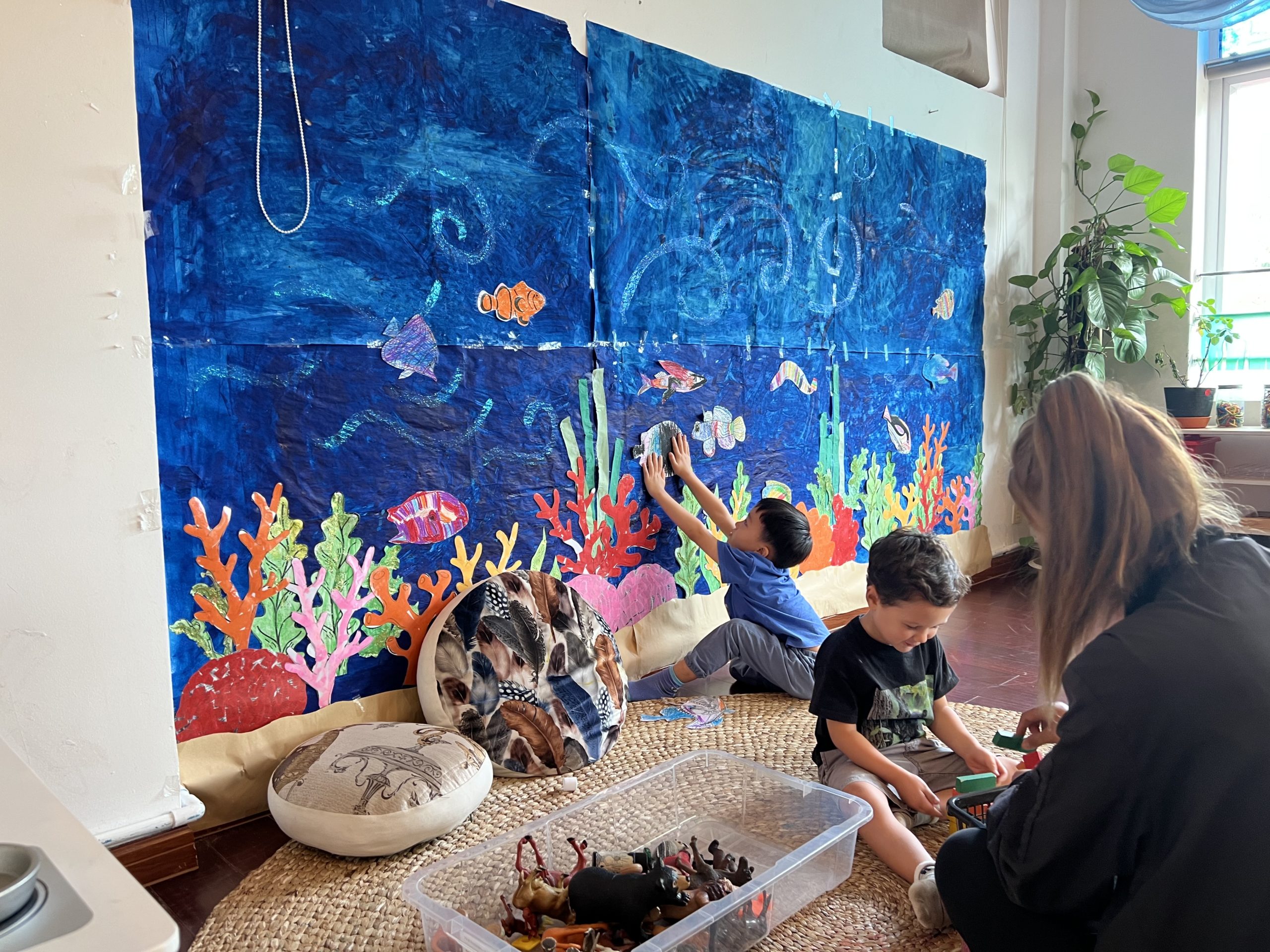
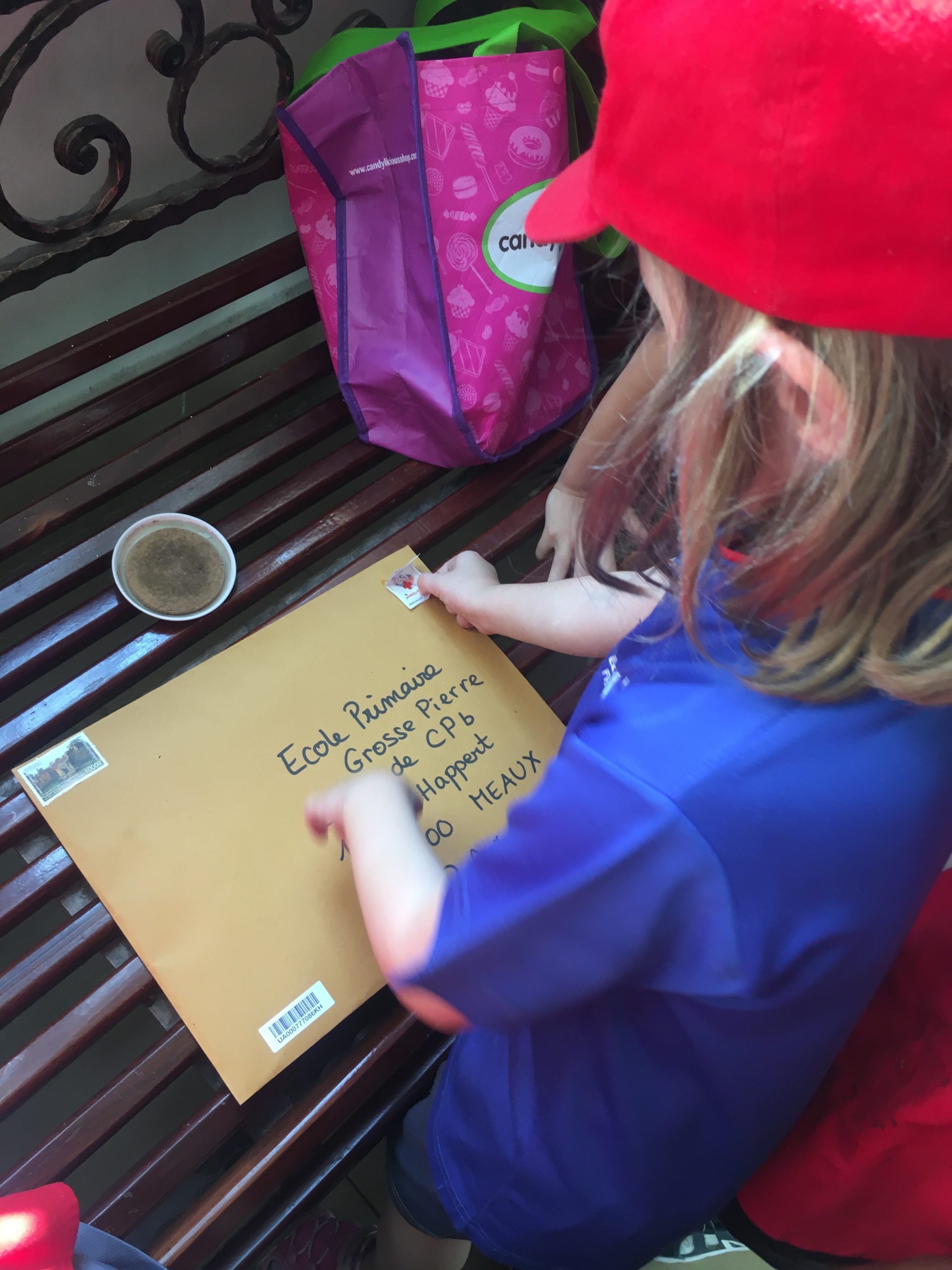
To guarantee the well-being and support the development of the child’s full potential, we favour a stimulating and varied environment in which the children can pursue each and every facet of their development, via the interaction and participation in activities designed to awaken all their senses.
At EFI we will promote intellectual learning, artistic skills, relational sensitivity and emotional richness. Children possess a natural curiosity that the school must not only maintain, but also feed. This is why we believe it is important to stimulate and reinforce the child’s desire to progress in a fun way, with play and exploration being the natural vehicles for early childhood learning. It is also essential to engage the students to give them a sense of living and interacting in a community. This involves introducing new rules of socialisation (helping each other, waiting their turn, etc). Preschool is often the child’s first experience of being in a community outside of the family. In preschool class, children will learn to structure their environment, which will help them to structure their thinking.
At this age, children tend to be scattered and bring together multiple activities that they start but rarely finish. So, structuring an environment of young children in fact serves to grant them greater autonomy. Step by step, EFI provides children with the means to gain self-confidence, to learn in a group, to acquire skills and, quite simply, to learn to love school.
EFI’s educational program is bilingual with French and English, that is to say that it is a single program, respecting the objectives set by the French National Education. Nevertheless, it will be enriched by certain specificities from the English system, linked notably to the teaching of language proficiency and to English-speaking culture. With their two teachers, students will be able to discover two different linguistic and cultural universes. Teaching the students the concept of taking pleasure in learning and respecting the rhythm of their individual development by offering everyone the necessary support are principles at the heart of our philosophy.
If a child has the opportunity to be immersed in a harmonious environment favourable to development and personal growth, they will have all the bases necessary to build their educational and academic successes. Games, experiments, observations, individual or collective autonomous activities are all exercises that shape the knowledge and skills of students. Ultimately, EFI aims to give them a range of tools that will allow them to realise their potential on a personal level and, later, on a professional level.
Primary school
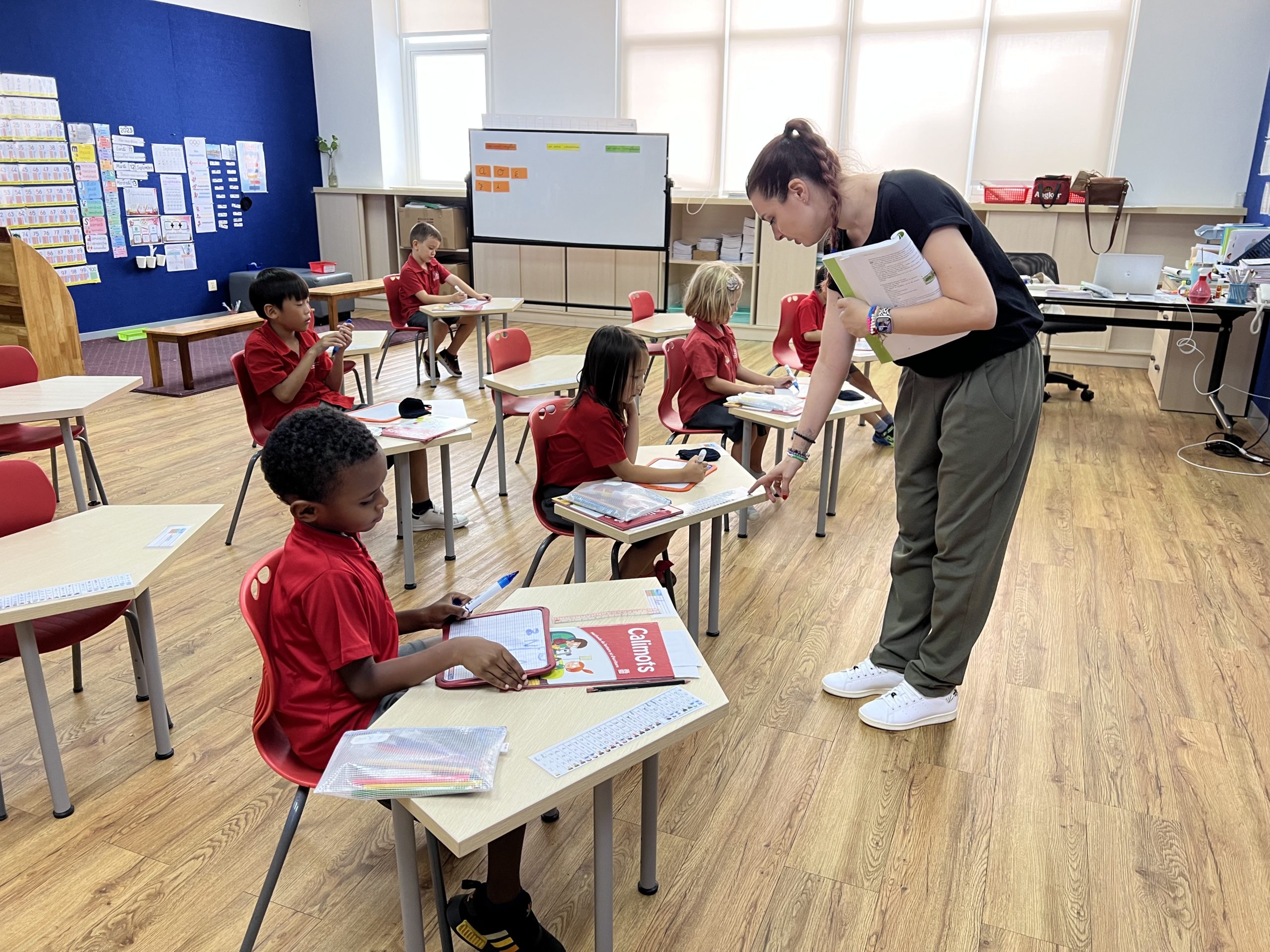
Primary school welcomes children aged 6 to 11. It includes 2 cycles; cycle 2 (Grade 1, 2 and 3) and cycle 3 (Grade 4 and 5).
This includes:
- French
- English
- Mathematics,
- A third language (at EFI this is a choice between Khmer or Chinese Mandarin) for the children who have acquired French and English
- Arts
- Physical education and sports
- Moral and civic education
- Questioning the world
To study at school means questioning the world. It also means acquiring specific languages: French, English, the language of maths, sciences and computing, and the language of arts and of the body.
The mastery of languages, notably that of the French language, is key.
The acquisition of fundamental knowledge (reading, writing, arithmetic, respecting others) is the priority. For this, the teaching must be particularly structured and explicit. It is not only about giving meaning to what is learned, but also about seeing that learning progress.
Classes are therefore organized around constant repetition of knowledge while it is being acquired, coupled with differentiated learning. It is a question of taking into account the particular educational needs or certain pupils who require specific educational arrangements.
At the same time, we try to construct an understanding of autonomy in the students. An understanding of both concrete and abstract concepts are developed in the students through observation, action, manipulation and experimentation. They are encouraged to work out what they already know and know how to do, as well as reflecting while learning. They learn how to carry out the fundamental school activities that will help them all through their time at school. Furthermore, they learn to justify rationally.
Middle school
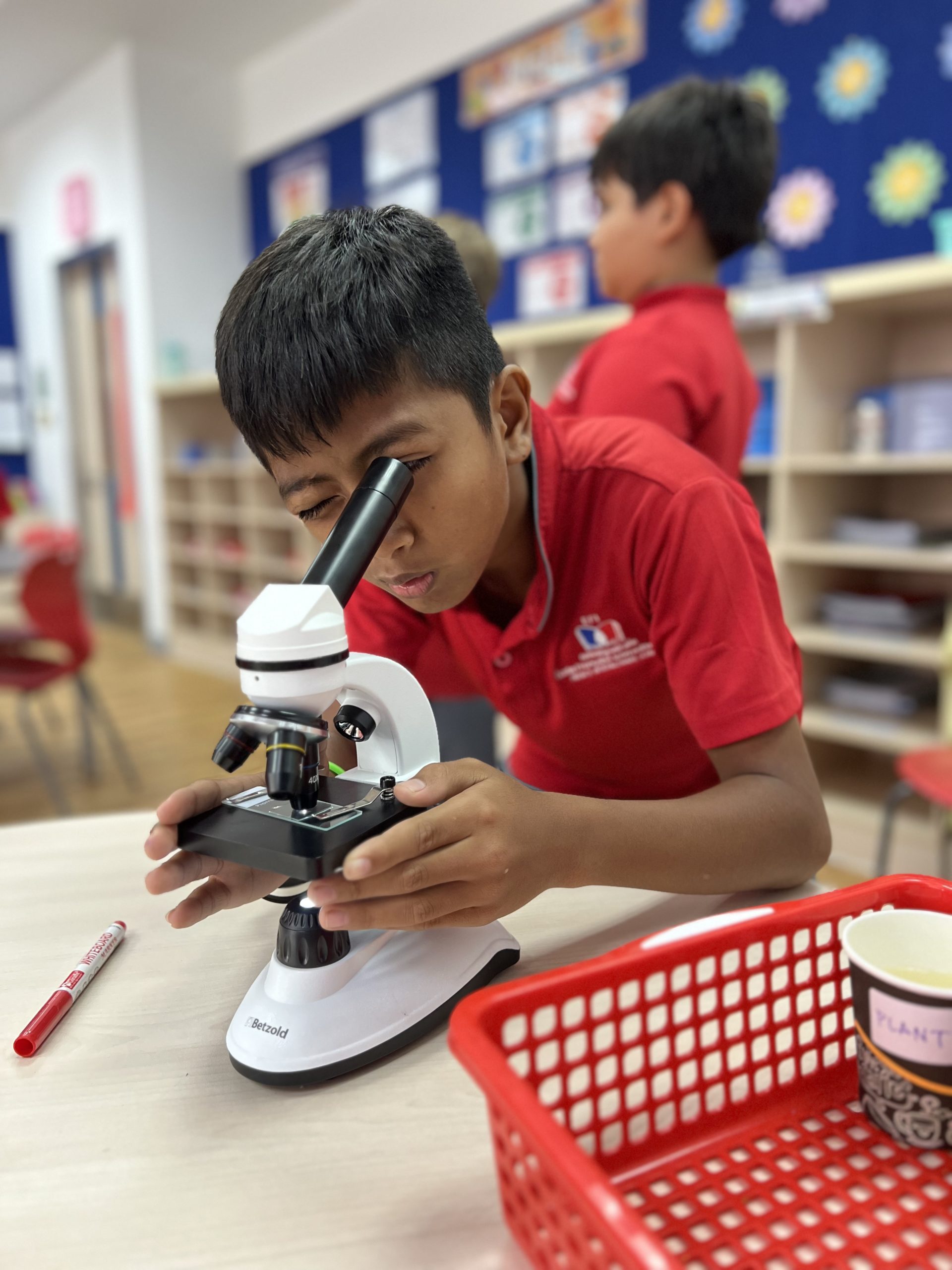
After primary school, middle school (cycle 3 and 4) emphasizes the transition to secondary education. It is organized in 4 levels from Grade 6 to Grade 9 and is structured in pedagogical cycles.
The teachings are:
- French
- English
- A third language (At EFI this is a choice between Khmer or Chinese Mandarin) for the children who have acquired French and English
- Visual arts
- Music
- Art history
- Physical education and sports
- Moral and civic education
- History and Geography
- Science and Technology
- Mathématics.
The class of 6e (grade 6) has a special role in the cycle: it allows the students to adapt to the rhythm, organization and general environment of junior high while continuing the learning that was started in CM1 (grade 4) and CM2 (grade 5).
In Grade 7, 8 and 9, the objective is to enable students to develop skills in the different disciplines and in cross-disciplinary courses.
The health educational course, the artistic and cultural education course and the civic course offer students, adolescents who experience a new relationship with themselves and others, a framework allowing them to build in a climate of confidence essential skills before the abundance of new knowledge and new technologies, particularly digital. They must be able to approach interdisciplinary situations with personal and creative thinking while respecting the standards that are part of a common culture.
More generally in cycle 3, students gain access to more abstract thinking that promotes reasoning and its implementation in more complex tasks. They are encouraged to act responsibly and to cooperate by doing projects, creating and producing a significant number of writings and by undertaking a variety of different tasks of all kinds. The media and IT education implemented since Cycle 2 will allow students to become more familiar with a question-style approach in the various fields of study. They are led to develop a keen sense of observation, curiosity, critical thinking and, more generally, autonomy of thought.
At the end of the Grade 9, students take the National French Diploma exams in collaboration with the CNED.
High school
EFI grows along with its students and each year a new grade is added. 2022-2023 is the year of the creation of the High school with the opening of a 2nd/Grade 10 and, through our accreditation with Cambridge International, our first High School students took the IGCSE test in May 2023. In 2024, 1ere/G11 students will take the preliminary Baccalaureate examinations. Finally, it is in 2025 that EFI will have its first Baccalauréat (High School Diploma) graduated students.
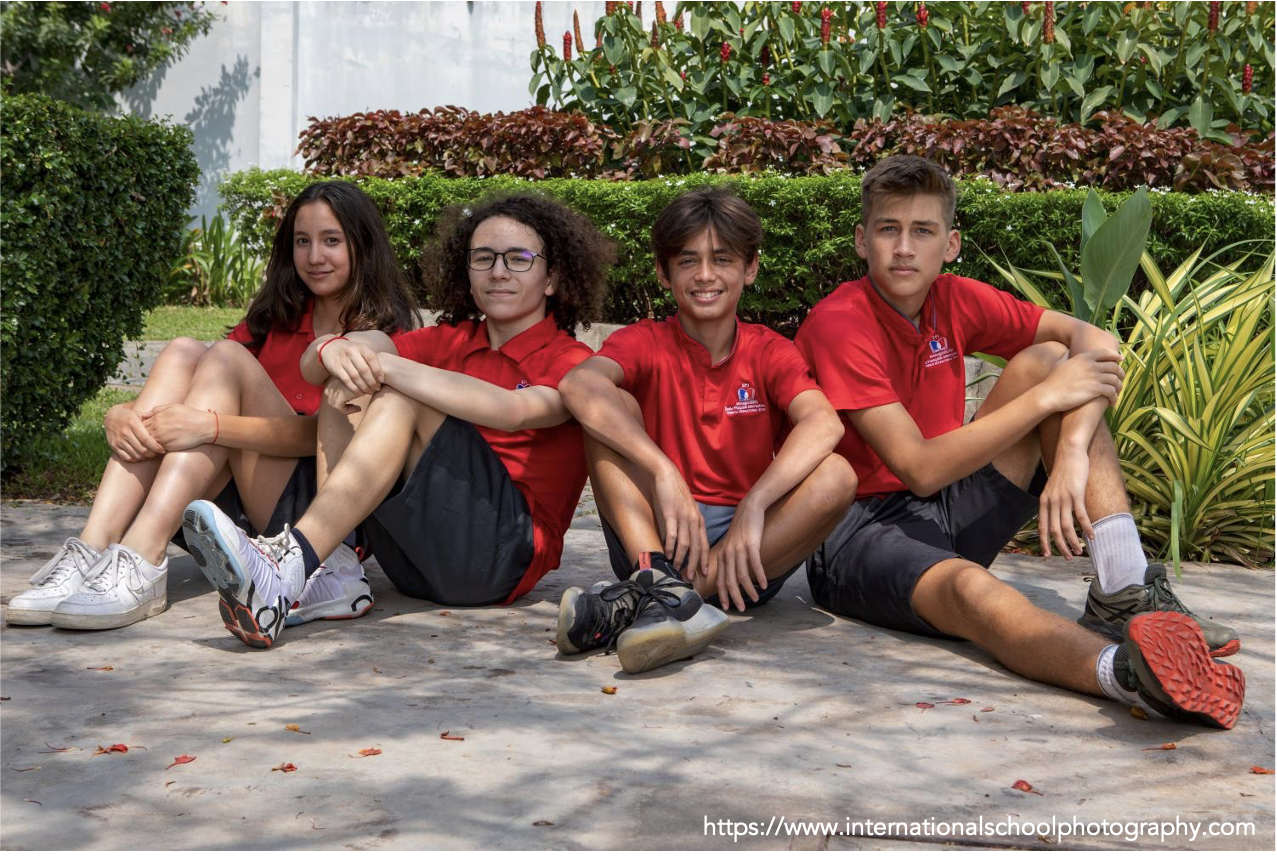
During the Seconde – Grade 10 year, students strengthen their knowledges and make academic choices for the Première – Grade 11 class regarding their skills and their wishes.
